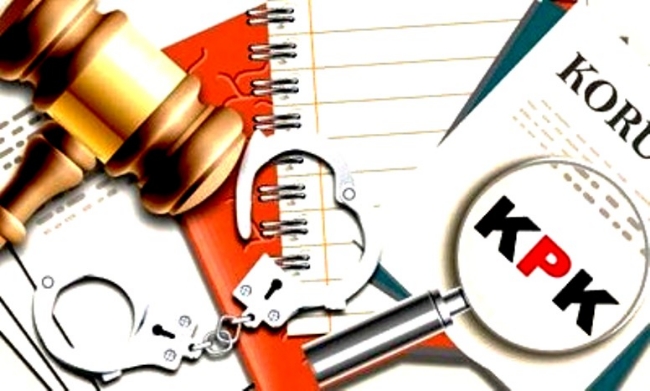Dr. Dewa Gede Sudika Mangku, S.H., LL.M
Chair of the Law and Citizenship Department, FHIS Undiksha & Chair of the Anti-Corruption Study Center Undiksha Singaraja
KORANJURI.COM – Eradicating corruption in Indonesia, if we look at the trend since President Jokowi’s administration in the first period, is indeed biting and tempting. In other words, President Jokowi is committed to eradicating corruption.
This is demonstrated by always providing support to the Corruption Eradication Commission (KPK) in taking action against corruptors. However, during his current administration, which is entering its second period, this shows a different formulation.
This is demonstrated by the government approving the new KPK law. Suddenly, anti-corruption activists throughout Indonesia were certainly not satisfied with the government’s decision.
This dissatisfaction was expressed by taking to the streets and holding demonstrations to reject the implementation of the new KPK law.
Both elements of society at large, academics from state and private universities, anti-corruption activists, and elements of the community who love this country which is free from corruption took action to reject the revision and implementation of the new KPK law.
As a result, it ended in nothing, their struggle was rewarded with the passing of the new KPK law.
The DPR ratified the new KPK law on September 17, 2019. Where the previous law, namely Law Number 30 of 2002, was replaced by Law Number 19 of 2019 concerning the Corruption Eradication Commission. With the new law, it is alleged that there are procedures that have not gone through the proper process.
Many people believe that the ratification of the KPK law seems forced and the processing has been rushed. Thus, it raises questions among anti-corruption activists and academics.
This can be seen from the fact that the community was not involved in the process of drafting the law so the public was unable to follow the process from the beginning until the law was passed.
The Indonesian people previously asked President Jokowi to revoke and not sign the law, so as not to escalate the situation in the country. However, President Jokowi still signed the law and it was implemented.
Seeing this situation, elements of society then asked President Jokowi to issue a Government Regulation instead of a Law (Perppu) for the KPK.
The KPK Perppu aims to reduce domestic action and remind President Jokowi of his identity to continue to oversee and support the eradication of corruption in Indonesia.
President Jokowi’s waiting for the KPK Perppu never came. Until now, the president has not issued a KPK Perppu, which means the KPK law can be enforced. This has disappointed the wider community, that President Jokowi has not kept his campaign promise to strengthen the Corruption Eradication Committee and eradicate corruption in this country.
Let’s look at the promises Jokowi-Maruf Amin made. This can be seen from the mission and vision of the two candidate pairs when running for President and Vice President.
Its mission is to improve the quality of Indonesian people; a productive, independent, and competitive economic structure; equitable and just development; achieve a sustainable living environment; cultural progress that reflects the nation’s personality, enforcement of a legal system that is free of corruption, dignified and trustworthy; protection for the entire nation and providing a sense of security to all citizens; clean, effective and trustworthy government management; regional government synergy within the framework of the Unitary State. With this mission emerged the vision of realizing an advanced Indonesia that is sovereign, independent, and has a personality, based on cooperation.
By adhering to the vision and mission that has been said, it is appropriate for the community to ask for what was said and pledged at that time. One of them is to continue to eradicate corruption and strengthen the Corruption Eradication Commission.
This hope will continue to be asked of President Jokowi and Maruf Amin to help eradicate naughty corruptors in this country. Don’t let the enactment of this new Corruption Eradication Commission law make the eradication of corruption in Indonesia become sluggish, lackluster, stagnant and the legal process not carried out.
Of course, this is a loss for the Indonesian nation. President Jokowi must continue to join hands with the Corruption Eradication Commission and support the Corruption Eradication Commission to eradicate corruption so that state money can be returned as state assets and this has been done by the Corruption Eradication Committee.
The KPK’s achievements in eradicating corruption in this country have been positively appreciated by the Indonesian people and of course, must continue to be carried out and President Jokowi must continue to provide support to the KPK to carry out its duties, without being hampered. This will restore the KPK’s true identity, namely guarding this country free from corruption.




